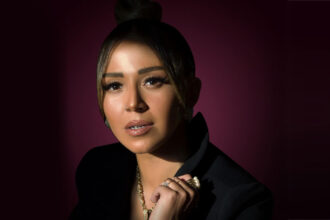Dubai-based Shreya Ramachandran (name changed on request) still harbours a slight resentment towards her mother, whenever she thinks about her childhood days, that is. Often bullied and ostracised as a child, her mother stepped in several times and complained to the principal of the school. “Since she was a teacher at the same school, she would often confront other children or adults for not being friendly, even when they weren’t causing harm anymore. As a result, people started avoiding me out of fear of her,” Ramachandran recalls.
She acknowledges her mother’s good intentions but feels that her protective behavior, which crossed from professional to personal, caused problems and embarrassment. “I wish she hadn’t kept scolding them, even after they stopped bothering me. She doesn’t understand why I’m still upset about those years,” she says.
Now a mother herself, Ramachandran recognizes the complexity of parenting. She often reminds herself not to dominate her eight-year-old son’s life with overly protective choices. “It’s a fine line between being protective and harming your child’s interests,” she reflects.
Her experience underscores a common dilemma faced by many parents today: When does protective parenting cross the line into over-involvement? Psychologists and parents weigh in on the importance of understanding boundaries and maintaining a balance between support and control.
Anna White, Director of Corporate and Workplace Services & Mental Health First Aid UAE, The LightHouse Arabia, explains, “Children thrive when they feel supported, and part of being a parent is being that safe space they can turn to. I like to think of it as standing behind them- you’re there to guide them, to catch them if they fall, but you’re not pulling them along or making every decision for them.”
Over-involvement, or helicopter parenting, often looks like stepping in too quickly or solving problems for them before they’ve had the chance to try. “It’s important to give children opportunities to make decisions, face challenges, and even fail because that’s where resilience, independence, and confidence are built. Without those experiences, children may struggle to develop the skills they need to navigate life on their own,” she says.
Unfortunately, despite their best efforts, often, parents unintentionally harm their child’s emotional development. As White explains, “Parents always want the best for their children, but sometimes, in trying to create a perfect, happy life, they can unintentionally make things harder in the long run.”
For example, constantly stepping in to fix problems, over-gifting, or creating a ‘bubble’ where everything feels ideal, can leave children unprepared for the realities of life. They slowly turn lax cognitively as they gradually lose the aptitude for solving problems, explains Esther Theresa, a child psychologist, based in Dubai. “If you, as a parent, keep trying to shield them from any sort of harm, first of all that’s unbelievably stressful for you, secondly, you’re harming your child further, as they grow accustomed to a bubble.”
It’s only when she approached her mid-twenties, did she understand her parenting styles. Dubai-based Keya Khare, a homemaker recalls, in their effort to protect her, they had controlled every aspect of her life. “I don’t remember making many decisions for myself, not till my marriage. If my parents didn’t agree with something: That was it. No questions asked, or were allowed to be asked, even if I cried and pleaded. They thought that was the best method of bringing a child up: Being firm on your stand, and saying no to frivolous indulgences. There was nothing in the middle for them,” she says. “They thought that they were setting healthy boundaries.”
Yet, healthy boundaries isn’t just about a ‘firm no’ to your child. “They are about providing structure and support while allowing your child some flexibility and independence,” explains White. “It’s the balance you see in authoritative parenting, which involves high expectations paired with high warmth and communication.”
On the other hand, being too controlling or authoritarian often means being rigid and demanding without room for discussion or understanding. This approach can lead to low self-esteem, fearfulness, or even rebellious behaviour in children. Striking the balance allows children to feel secure but also empowered to make decisions within the boundaries you’ve set, adds White.
The problem with harsh and overly permissive parenting
Being ‘strict’ with your child is one thing, yet, as Theresa points out, many parents blur the lines between being strict and harsh, which generates problems of its own. It breeds fear, low-self esteem and the child gradually has difficulty forming healthy relationships. “Children raised in this environment may either become overly compliant or, conversely, rebellious,” explains White. Worse, many parents also believe in ‘tough love’, where they reprimand a child, who is already unhappy, ‘to figure it out’ on their own. “That makes the child more confused and anxious. They start believing that they have no reason to be unhappy, and forcefully look for a solution that might not align with them, because they want to appear resilient,” adds Theresa.
On the other hand, permissive parenting, where boundaries are inconsistent or absent, can leave children feeling insecure and lacking the ability to regulate themselves. They might struggle with impulsivity or expect the world to cater to their needs.
Finding the balance
As both White and Esther say, the sweet spot is authoritative parenting- it’s about setting clear, consistent expectations with warmth and understanding, which helps children develop confidence, emotional health, and the ability to navigate life’s challenges.
How can you tell if your actions are causing anxiety to your child?
As White says, it often comes down to being curious and observant. For older children, it’s helpful to ask open-ended questions like, ‘How are you feeling about this?’ or ‘What’s been on your mind lately?’ They might not use words like “anxious’ or “stressed,” but they might say things like, ‘I don’t feel good,’ I’m tired’ ‘I don’t want to talk to you’, or ‘I don’t want to go to school.’
“Younger children might show it through changes in behaviour for example, difficulty sleeping, changes in appetite, mood swings, or withdrawing from activities they usually enjoy. The key is to notice these shifts and piece together the clues, almost like a detective, to understand what might be going on,” adds White.
You need to read between the lines, explains Theresa. Listen to what your child doesn’t say. Watch their behaviour closely.
What can really work…
There’s no one-size-fits-all approach. Every parent, child, and family dynamic is unique, shaped by individual strengths, cultural values, and personal circumstances. “The goal of ‘healthy parenting’ is to find what works for your family while prioritising your child’s emotional and developmental needs,” says White.
Speak to your children as if they are wise, kind, and capable. What they hear from you becomes their inner voice. For example, instead of, ‘Why can’t you do this right?’ try, ‘I see you’re trying hard, and I’m proud of that effort’.
Here are some strategies:
Encourage decision-making: Let your child make age-appropriate decisions, like choosing clothes or meals, to foster independence.
Support failure: Allow setbacks and provide reassurance, teaching resilience and problem-solving.
Praise effort: Focus on praising effort, not just outcomes, to build self-esteem and internal motivation.
Set clear, flexible boundaries: Establish consistent rules with room for flexibility, teaching responsibility and autonomy.
Model emotional expression: Discuss your emotions openly, teaching emotional regulation and coping.
Engage in open communication: Ask open-ended questions to foster trust and emotional connection.
Assign responsibilities: Give age-appropriate chores or tasks to build accountability and life skills.
Practice mindful parenting: Pause before reacting to understand your child’s needs and make thoughtful decisions.
Validate emotions: Acknowledge your child’s feelings before offering solutions, fostering emotional expression.








